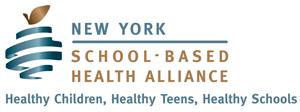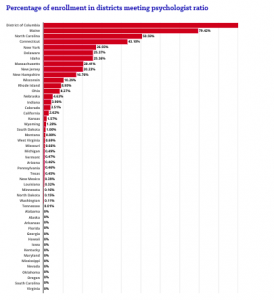School psychologists and counselors are crucial to supporting the mental health and well-being of students in school. This is especially true as kids’ mental health needs continue to rise and survey data show that students are asking for more school-based mental health services.
But an original analysis of federal data by Education Week finds that many school districts fall way below recommended staffing levels for both professions.
What do school psychologists do? What do school counselors do?
While there is often some overlap in the roles psychologists and counselors play in schools, the National Center for Education Statistics’ Common Core of Data provides definitions of the roles of school psychologists and counselors that include these responsibilities:
School Counselors/Directors are professional staff assigned specific duties and school time for:
- counseling students and parents,
- addressing learning problems,
- evaluating students’ abilities, and
- assisting students in career and personal development.
School Psychologists are professional staff members who provide direct and indirect support, including prevention and intervention, to evaluate and address:
- students’ intellectual development,
- academic success,
- social-emotional learning, and
- mental and behavioral health.
How many students have no access to school psychologists or counselors?
While most schools do have school psychologists and counselors, some do not have any.
More than 5.4 million public school students (12%) attend districts with no psychologists.
To continue reading, CLICK HERE.

